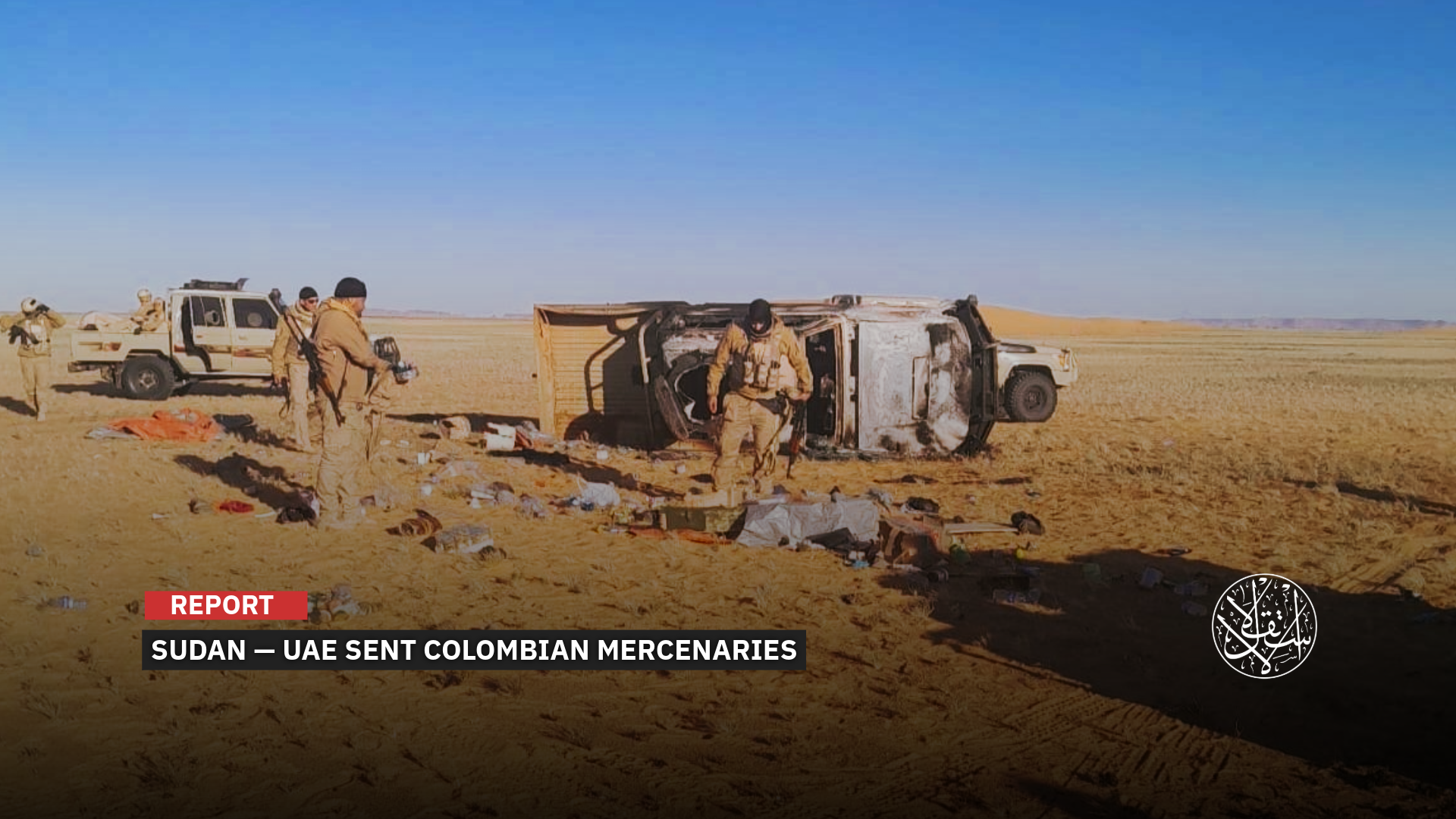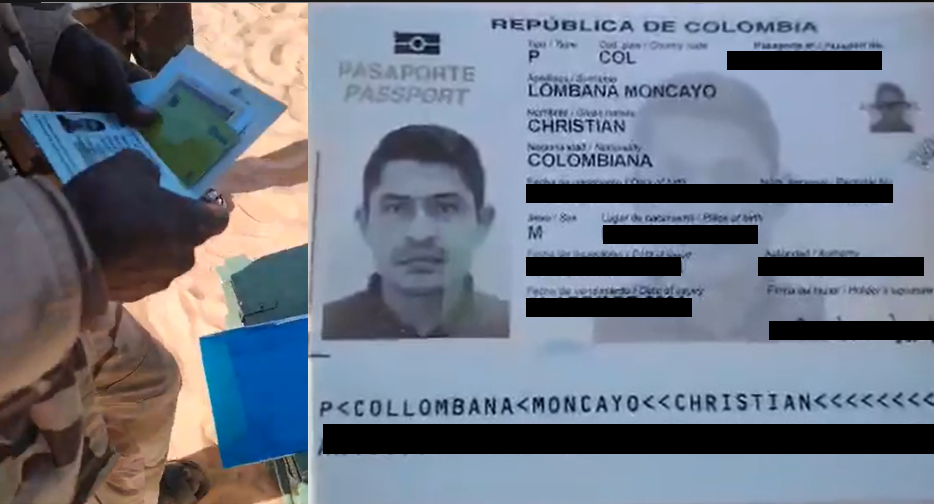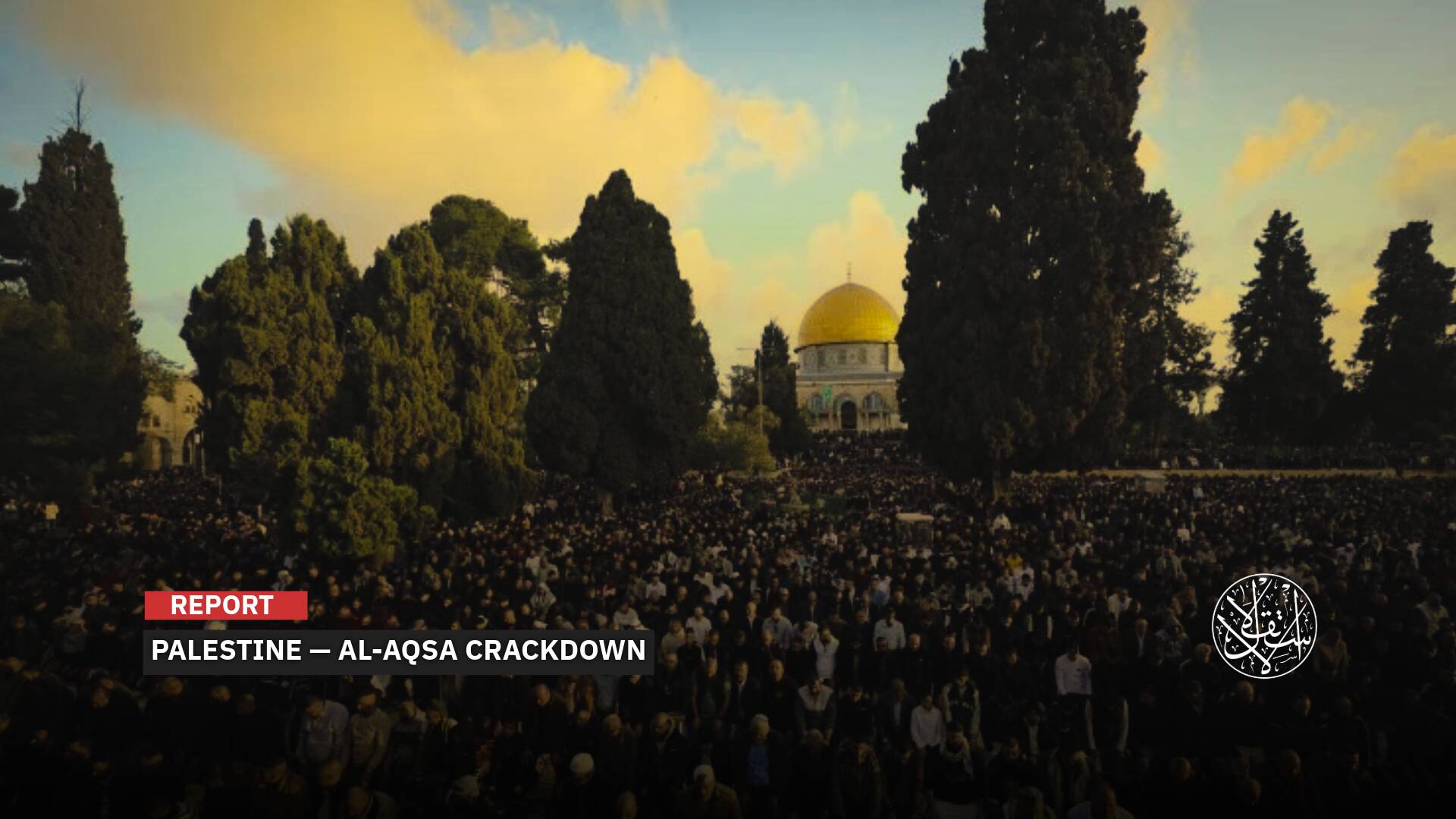How the UAE Sent Colombian Mercenaries to Support the RSF Militia in Besieging el-Fasher

“Those who have spilled blood abroad for money should face justice.”
In the heart of Sudan’s western desert, near the besieged city of el-Fasher, not all the fighters confronting Sudanese government forces were local. Some, as it turns out, were not even Sudanese.
On August 3, 2025, the Sudanese Armed Forces released a startling statement. Among the attackers attempting to breach the city’s defenses were foreign fighters holding Colombian passports. The military reported that their leader had been killed in the clashes.
The revelation offers further evidence that Sudan’s war is no longer a strictly domestic affair. Yet the deeper concern is not limited to the fighters’ nationality. The larger question centers on who brought them to Sudan, who paid for them, and who benefits from their presence on the battlefield.
All signs point to the United Arab Emirates, a country long accused of operating private security networks staffed by former Latin American soldiers. These fighters have been deployed in other conflict zones, including Yemen and Libya. Now, el-Fasher appears to be their next stop.
Amid a deliberate media blackout surrounding events in western Sudan, a dangerous foreign intervention has come to light: the recruitment of Colombian mercenaries to take part in the siege of a populated city as a prelude to its invasion. This planned assault is part of a larger scheme to impose control through force, weapons, and foreign funding.
A Pattern of Recruitment
Since the war began, the United Arab Emirates has supported the rebel militia known as the Rapid Support Forces not only with weapons and aid shipments but also by recruiting foreign fighters from Latin America, particularly Colombia, to fight alongside them in Darfur.
A December 11, 2024, investigation by WSJ revealed cellphone footage taken in remote areas of the Darfur region. The videos show armed men in military uniforms displaying weapons and personal belongings seized from newly captured prisoners.
In one video, a fighter can be heard flipping through a pile of passports. “Look at this, they aren’t Sudanese,” he said, his Arabic inflected with the local Zaghawa dialect, holding up a passport issued some 7,000 miles away by the government of Colombia. “These are the people who are killing us.”
WSJ confirmed, through interviews with more than a dozen international officials and former Colombian soldiers, that these mercenaries were recruited during the first half of 2024. The effort was led by an Emirati company known as the Global Security Services Group (GSSG), headquartered in Abu Dhabi.
According to its official documentation and online platforms, GSSG describes itself as the exclusive armed provider of private security services to the Emirati government. Its clients include sovereign institutions such as the Ministries of Presidential Affairs, Interior, and Foreign Affairs.
In early January 2025, the Sudanese English-language outlet Ayin published an extensive investigation, drawing on the work of Colombian journalist Santiago Rodriquez, who revealed troubling details about an international network of mercenary recruitment.
Rodriquez reported that the network targets former Colombian soldiers, funneling them into the ranks of Sudan’s Rapid Support Forces through deceptive promises and misleading private security contracts.
According to the journalist, former Colombian servicemen were lured by what appeared to be legitimate job offers from recruitment companies operating between Colombia and the United Arab Emirates. Chief among them were the Colombian firm A4SI and the GSSG.
The investigation revealed that these companies initially offered contracts for high-paying security roles, purportedly tied to the protection of oil installations in the Gulf. However, once the recruits arrived in the United Arab Emirates, it became clear that their true destination was Libya and subsequently Sudan, where they were instructed to participate in military operations alongside the Rapid Support Forces.
Rodriquez told Ayin that many of these former soldiers were misled about the nature of the mission. They were told they would be working at secure facilities. Instead, they found themselves abruptly deployed to front lines in Sudan.
Testimonies from the Field
The investigation relied on direct testimonies from former soldiers, supported by voice recordings, documents, photographs, and screenshots from WhatsApp groups used to coordinate movements.
It noted that while some of the recruits were aware they might be deployed to active combat zones, the majority were given no real choice in the matter.
The findings of the Ayin investigation aligned with a separate report by the Dutch investigative outlet Bellingcat, which tracked the movements of Colombian mercenary Christian Lombana Moncayo. He reportedly departed from Abu Dhabi on October 11, 2024, headed for Benghazi, Libya, before crossing into Sudan by land.
While Sudanese joint forces allied with the national army claimed to have killed 22 Colombian mercenaries in clashes in Darfur, Rodriquez questioned the lack of field evidence. “Why are they claiming these Colombians were killed but providing no proof?” he asked.
He noted that his investigation increased pressure on the mercenaries operating in Sudan. In response, the companies raised their payments and threatened them to remain silent about their involvement in Sudan.
Despite the seriousness of these allegations, neither the UAE nor the leadership of the Rapid Support Forces issued any official response.
Ayin pointed out that this was not the first time Emirati security firms have been implicated in misleading recruits and deploying them into conflict zones aligned with Abu Dhabi’s regional interests. In 2020, reports revealed that the company Black Shield had recruited hundreds of Sudanese men for what they believed were security jobs in Abu Dhabi, only for them to be sent to Libya to fight instead.

Transport Method
In a separate investigation published by the Colombian newspaper La Silla Vacia on March 2, 2025, it was revealed that the GSSG company had transferred hundreds of Colombian mercenaries to Sudan, passing through temporary camps located within Bosaso Airport in the Puntland region of Somalia.
These fighters benefited from their prior experience in coastal guard units, which were trained by the United Arab Emirates in Puntland since 2010, allowing them to move logistically and discreetly across the Horn of Africa without drawing attention.
In a notable development, Turkish-made Bayraktar TB2 drones operated by the Sudanese army targeted Nyala Airport in South Darfur on May 3, 2025. Military sources said the strike targeted an aircraft suspected of transporting Colombian personnel brought in to fight alongside the Rapid Support Forces.
The strike resulted in heightened tensions between Khartoum and Abu Dhabi, which escalated further when the UAE-backed Rapid Support Forces launched an assault on military installations in Port Sudan. The attack continued for six consecutive days.
On December 3, 2024, the Sudanese Ministry of Foreign Affairs announced that it had received a formal apology from the Colombian government regarding the involvement of some of its citizens in combat operations alongside the Rapid Support Forces.
The apology came during a phone call between Colombian Foreign Minister Luis Gilberto Murillo and Sudanese Foreign Minister Ali Youssef.
The Colombian side expressed regret over the participation of Colombian mercenaries in the country’s ongoing war, emphasizing that their joining did not represent the official policy of the Colombian government.
The Government’s Position
Amid growing controversy over the involvement of retired Colombian soldiers in armed conflicts abroad, most notably the war in Sudan, President Gustavo Petro adopted a firm stance, calling for an end to “the phenomenon.”
In a post on X in November 2024, Mr. Petro emphasized that “the standard of living for military personnel in Colombia must improve, but those who have spilled blood abroad for money should face justice.”
In a concrete step, the Colombian government submitted a bill to Congress aimed at criminalizing companies and organizations that exploit retired military personnel and deploy them to foreign battlefields.
The proposed legislation is based on the 1989 United Nations Convention against the Recruitment, Use, Financing and Training of Mercenaries. Although the treaty has been signed by only about thirty countries, it represents, according to legal scholar Urena, a smart step in the right direction to criminalize those who profit from the exploitation of human beings.
While Sudan is the most recent theater in which Colombian mercenaries have surfaced publicly, the phenomenon is not new. These former soldiers have previously participated in wars in Yemen, Iraq, and Afghanistan.
Their names also emerged in one of the most notorious cases in recent memory: the 2021 assassination of Haitian President Jovenel Moïse, a plot carried out by roughly 20 Colombians, most of whom were retired military officers.
These recurring incidents have raised growing concern both within Colombia and internationally over the role of former soldiers as tools in proxy conflicts orchestrated by foreign powers, in clear violation of international law and the principle of national sovereignty.
Sources
- Colombian Mercenaries in Sudan Show Internationalization of Conflict
- Foreign mercenaries and the RSF—Colombians misled into battle
- Sudanese Army Releases Video Showing Colombian Mercenaries Fighting Alongside RSF in Battles for el-Fasher [Arabic]
- Colombian Mercenaries: The New Bet of Paramilitaries in Sudan’s Civil War [Spanish]
- 'Desert Wolves': This Is How Colombian Mercenaries Operate in Sudan [Spanish]










